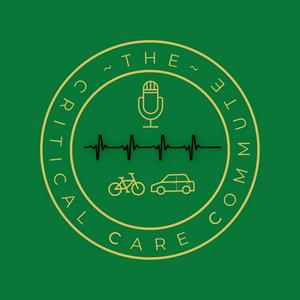If It Goes by Air, Should a Doctor Not Be There? Pre-Hospital Care with Dr. Mike Christian
Dr. Mike Christian is a critical care and pre-hospital medicine specialist with extensive experience in aeromedical transport and military medicine. His diverse career spans work as a paramedic, internal medicine and critical care training, and roles as a flight physician with London Air Ambulance and the Canadian military. He is a leading advocate for integrating interprofessional teams and advancing physician-led pre-hospital care in Canada. Currently, he is involved in the MedResponse BC initiative, which aims to enhance critical care delivery outside of hospitals.In this episode, Peter and Leon sit down with Mike to explore the evolving landscape of pre-hospital critical care. From his unconventional career path to the integration of AI in emergency response, he shares insights on improving outcomes in pre-hospital medicine and the lessons Canada can learn from global high-performance systems.Key Topics & ChaptersMike’s Career JourneyFrom paramedic to physician: an unconventional pathMilitary and aviation medicine experienceThe shift to leadership in pre-hospital carePre-Hospital Critical Care: Canada vs. The WorldHow Canada’s HEMS (Helicopter Emergency Medical Services) differs from global modelsLessons from the UK, Australia, and DenmarkThe role of AI in dispatch and triageThe Role of Physicians in Pre-Hospital MedicineThe evolving need for physician-led care outside the hospitalThe impact of interprofessional teams on survival ratesMentorship, coaching, and cultural change in pre-hospital systemsThe Role of the Physician in Pre Hospital Medicine. AI-powered dispatch and GoodSAM app in improving CPR and trauma responseScoop and run vs. stay and play: What actually saves lives?Addressing Canada’s geographical challenges with rural and remote careFuture Directions in Pre-Hospital MedicineThe rise of telemedicine and virtual ICUsDeveloping triage physicians and training programsMedResponse BC: A new model for interprofessional pre-hospital careKeywords:Pre-hospital care, critical care transport, HEMS, trauma response, paramedics, physician-led pre-hospital medicine, telemedicine, AI in emergency medicine, interprofessional teams, rural emergency care, GoodSAM app, London Air Ambulance, MedResponse BC.Links of Interest: CCCF Presentation: https://youtu.be/MVDHaYaZRSI (Web view)Recent Publication: https://doi.org/10.1186/s13049 (Web view)


